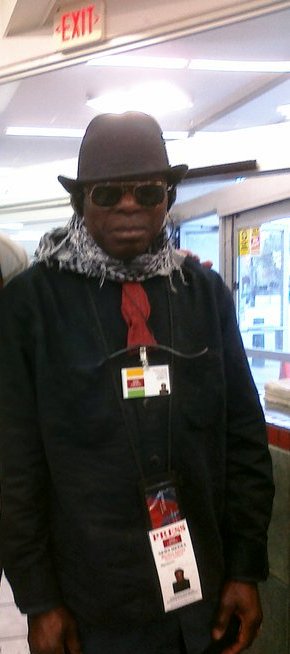|
|
|
|
|
|
|
|
ALFRED, Maine -- A high-profile prostitution scandal
featuring sex videos, adultery, exhibitionism and more than 100 clients
drew to a close Friday when a Zumba fitness instructor was sentenced to
10 months in jail after telling the judge she was happy to have escaped
her former life of crime.
Addressing the judge
through tears, Alexis Wright said she felt relief when police raided
her business on Feb. 12, 2012, because she wanted out.
"In
my eyes I'm free. I free from this. And I have an incredible amount of
strength that I knew was in me somewhere. Now that I have the strength I
want to encourage others to come forward. I want them to know that
there's at least one person out there who'll believe their story, no
matter how crazy it seems," she told the judge.
The
30-year-old Wright was sentenced under a plea agreement to 20 counts
including prostitution, conspiracy, tax evasion and theft by deception.
Afterward, she was led from court to begin serving her sentence.
Her
attorney, Sarah Churchill, told the judge that the defendant had a
difficult childhood, witnessing domestic violence and suffering sexual
abuse, before she met Mark Strong, who became her eventual business
partner. She said Strong used her troubled background to manipulate her.
Justice Nancy Mills extended wishes for success after the sentence was formally imposed in Superior Court.
"Based
on what you have to say and what I know about you from your attorney, I
know that you will succeed when you're released and that you will
prevail. I wish you success," Mills said.
The
single mother was accused of conspiring with Strong, an insurance
business owner, to run a prostitution business in which she videotaped
clients without their knowledge and kept detailed records over an
18-month period indicating she made $150,000 tax-free. She also
collected more than $40,000 in public assistance.
The
scandal in the seaside town of Kennebunk, known for its sea captain's
mansions, beaches and New England charm, became a sensation following
reports that Wright had at least 150 clients, some of them prominent. So
far, those who have been charged include a former mayor, a high school
hockey coach, a minister, a lawyer and a firefighter.
Wright
was originally charged with 106 counts. All the counts in the plea
agreement were misdemeanors, including three counts relating to welfare
and tax fraud that were reduced from felonies.
Under
the agreement, prosecutors will seek restitution of $57,280.54.
Prosecutors say Wright cooperated with prosecutors and spared the state
an expensive trial.
Her business partner,
Strong, 57, of Thomaston, was convicted of 13 counts related to
promotion of prostitution and was sentenced to 20 days in jail. The
married father of two, who has acknowledged having an affair with
Wright, was originally charged with 59 counts.
On
Friday, Wright looked back at her husband, whom she married last year,
before addressing the judge. She said it was "incredibly nauseating" to
hear Strong speak in the media of their relationship as one of love and
friendship. She said she felt relief when police raided her business.
She said she intends to make good on her vow to help others.
"It's
my intention to stand up for what is right. When I'm out, I'm going to
pursue helping people fight through situations that are similar to
mine," she said. "I'm optimistic that something good will come out of
this."
Her husband, Jayson Trowbridge, left without addressing reporters.
In
a presentencing memorandum, the defense said Strong took photos of her
as a model before she became part of his private investigation firm and
was manipulated into believing she would become an "operative working
for the state to investigate all manner of sexual deviants."
Churchill stood by that assessment Friday, calling the situation and relationship as "incredibly complex."
Deputy
District Attorney Justina McGettigan, however, said the state continues
to believe Wright was "a willing participant" in the prostitution
business. "The state believes she and Mark Strong were equal partners
and that she played an active role in the operation," she said.
It
came as little surprise that Wright opted to avoid standing trial by
pleading guilty because evidence against her was overwhelming in
Strong's trial, with jurors watching a video of her engaging in sex with
a client who left $250, which she pocketed.
Prosecutors say paid sex happened in her studio, apartment and an office, where tenants complained about moaning and groaning.
Electronic
evidence was plentiful because the two kept in touch via text, email
and Skype, which Wright used to send a live video stream of sex acts to
Strong. Videos also showed them speaking openly of ledgers, payments and
scheduling.
Evidence unsealed after the trial
indicated electronic exchanges in which Wright talked about the
business goals: nine clients a week, 45 clients a month. They also
openly discussed scheduling, insurance payments, her sexy outfits and
clients' preferences. She even appeared to seek advice from Strong after
encountering an unhappy client.
Business was running smoothly before it came to an abrupt end.
"I
feel like this is going to be a good week," Wright wrote to Strong two
days before the arrival of detectives with search warrants on Feb. 14,
2012.









